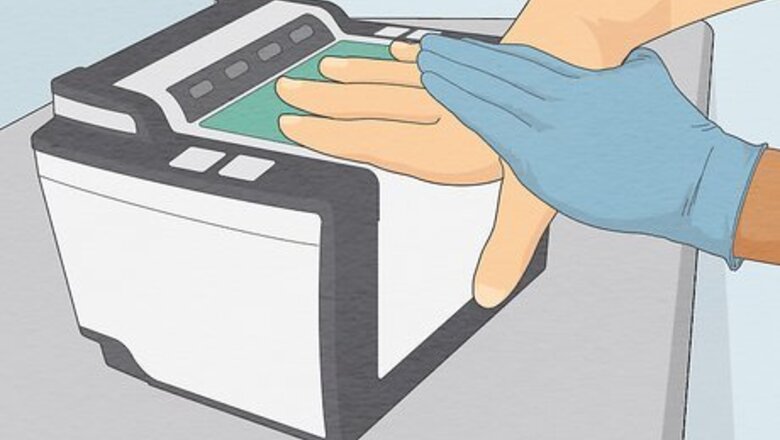
views
- Find the auction dealer license requirements and application on your state's DMV (or equivalent) website. The documents and fees vary from state to state.
- Complete a background check and any pre-license education requirements mandated by your state before submitting an application.
- Make sure your dealership business is registered and you have proof of lease or ownership. Then provide proof of liability insurance, a surety bond, and your tax ID.
Dealer License for Car Auctions Requirements
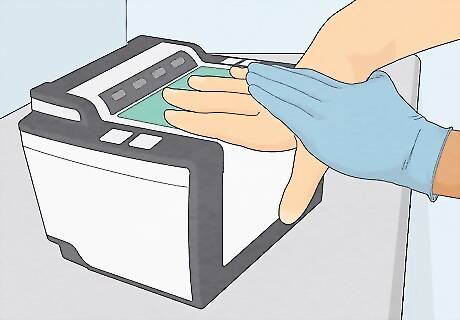
Background check In most states, you’ll have to pass a live scan fingerprint check and have your driver’s license history inspected. This is to verify your identity, criminal history, and driving record (specifically tickets and DUIs). A credit check may also be done—a high credit score can save you money by lowering interest on business credit lines and getting you better business loan offers. In some states, you may be responsible for seeking out and paying for a background check yourself. Others may provide or recommend screening locations. Getting an auction license is very similar to getting a regular retail auto license. The ability to auction may be included in some retail auto licenses, so check your current license to verify if you already have access.
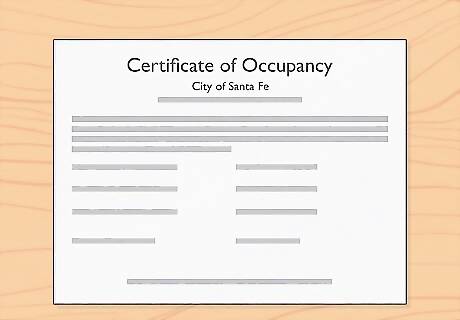
Proof of a place of business A place of business describes the physical location you run your business from, like an office or dealership. Typically, you’ll have to submit proof of lease or ownership (like a Certificate of Occupancy or Letter of No Objection to do business) and provide pictures of the location in your license application. The specifications vary by state, but generally, you’ll need to have a physical location with a lot or warehouse, an office space, and a display area (all with correct zoning and signage). In some states, like California, you’ll need to schedule an in-person inspection of your place of business.
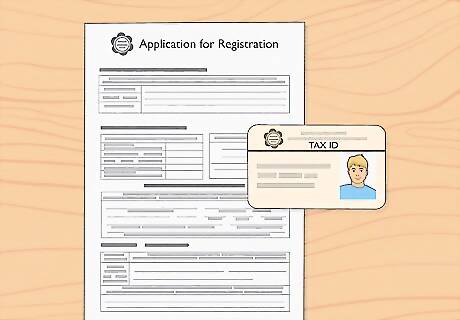
Business registration & tax ID Register your business with the state, typically through the Secretary of State’s Office (although the name of the agency may vary from state to state). After registering and paying a business license fee, you’ll be given a business license that allows you to work with vendors like wholesalers and auction houses. The license will also provide your IRS tax ID number, which you’ll need for your auction dealers license application. Check your local guidelines around business registration on a trustworthy government website (typically ending in “.gov”). Consider consulting a lawyer or business manager if you’re tackling this step on your own, as they’ll make sure you follow all legal requirements to a T.
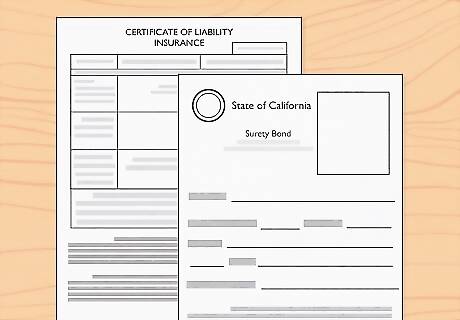
Proof of liability insurance & a surety bond A surety bond is a three-party contract where the surety (you or the bond underwriter) guarantees the debts or obligations of the principal (your dealership) to an obligee (the state) at their expense. In simple terms, a surety bond puts you on the hook if your dealership fails to comply with state laws and obligations. The monetary amount of the required bond depends on the state (typically $25,000 to $50,000). You’ll also need to purchase either garage liability or general liability insurance for bodily injury and property damage and coverage for personal injury protection. The required monetary amount varies by state (typically at least $25,000).
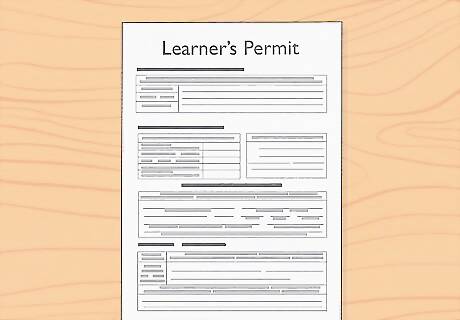
Pre-license education Many states require a certificate of completion for “education hours” related to your license. In most cases, the hours can be completed online at your own pace. Make sure to get your hours through the DMV, DOT, or Secretary of State’s office (depending on your state) in order to get the completion certificate. Simply Google something like “dealer auction license education” or “dealer auction license training” followed by your state and look for offerings from a government website (usually ending in “.gov”). Often, you can sign up for a class right from the DMV or Secretary of State’s office website. The price varies by state and the class date(s) you select. Include your certificate of completion in your license application. Depending on your state, you may also have to have a high school diploma or GED and be at least 18 years old.
Application Process & Fees
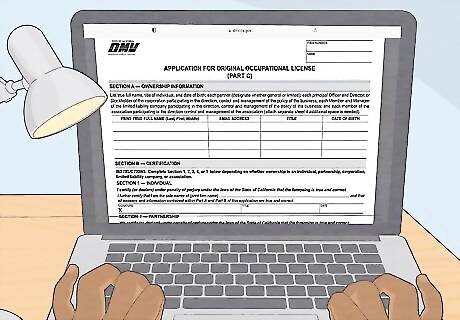
Fill out and submit a paper or online application through the DMV. Once you’ve checked the license requirements and gotten all of your paperwork together, check the DMV website for your state (or the DOT, Secretary of State’s office, or other agency website that handles dealer licenses) for application instructions. Many states have an easy online option, while some only offer mail-in paper applications (like Wisconsin). Some applications also offer wholesale dealer licenses in addition to your auction dealer license at no extra cost. Your retail dealer license may already come with an auction dealer license. Double check before submitting and paying for an application.
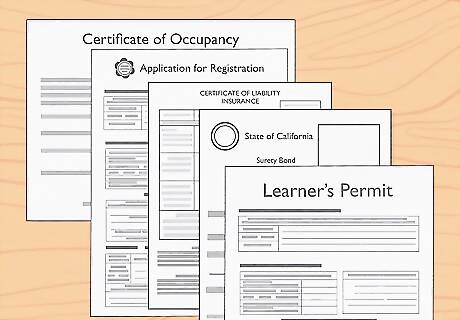
Upload or include all of the required documentation and materials. Submit clear, readable copies of your proof of insurance, pre-license education certificate, photos of your place of business, or any other documents required by your state. Triple check that you’ve included everything before submitting your application or you may have to restart the application process. Generally, supporting documents include: Background check documentation (including credit check if required) Proof of liability insurance in the amount designated by the state Surety bond in the amount designated by the state Business license and tax ID forms Proof of lease or ownership of your place of business (such as a Letter of Compliance from a zoning authority or Certificate of Occupancy) Photos of your business location or a state inspection document A recent financial statement prepared by a CPA or public accountant (in some states)
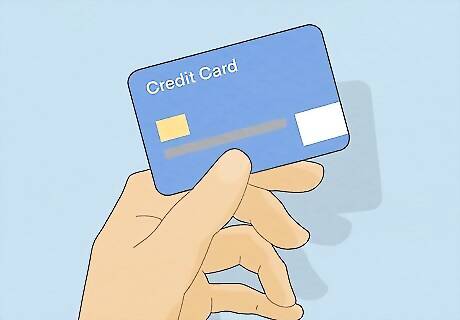
Pay the application and license fees. Include payment for any fees when you submit your application. If you submit online, just pay by credit card when prompted. If you’re mailing in a paper application, include a check made out to the appropriate agency indicated in the application instructions. The fees vary from state to state. Application fees may range from $15 to $100. License fees are generally several hundred dollars, but the exact amount depends on your state and the length of time the license covers. A 24-month license will cost more than a 12-month license, for example. Other fees and costs to maintain a license vary by state but may include business licensing fees around $250, insurance premiums based on your coverage plans, flooring plan fees, and dealer plate (tag) fees (around $50 for a set or $15 for duplicates).
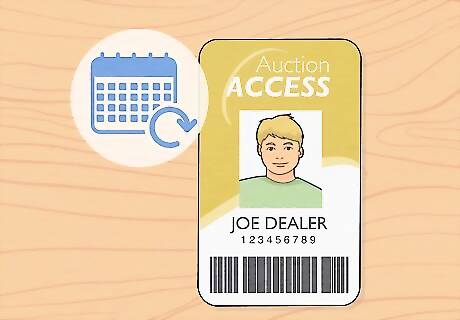
Renew your license annually to stay in good standing with the state. In most cases, simply fill out a renewal application in the same manner you submitted your original application. If your information is the same as when you first applied, the renewal process will be simple since the state already has a record of your business, insurance, and finances. If your information or coverage has changed, the process may be more involved since you’ll have to acquire new, updated documentation. The renewal timeline depends on your license structure. Some states may ask you to renew annually while others may issue licenses good for 18 months, 2 years, or longer.
Auction Dealer License vs. Wholesale Auction License
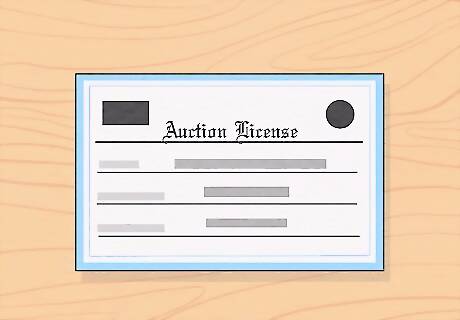
Auction dealer licenses let you sell to the public and dealers at auctions. With this license, you have access to both public and dealer-only auctions. You can sell at retail prices to other dealers or directly to the public or private individuals (depending on your state’s specific regulations). Many auction dealer licenses also include a wholesale auction license. Some auction licenses are already included with retail auto dealer licenses, which are needed to sell to the public at your own dealership or elsewhere in the first place.
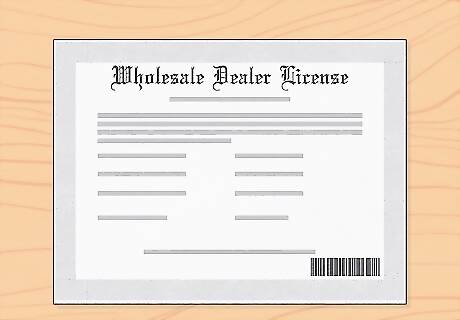
Wholesale licenses let you auction cars between licensed dealers only. A wholesale license is handy if you plan to move large quantities of vehicles between dealerships, other wholesalers, rental car companies, or even banks (or if you have an interest in flipping cars and selling them for profit). With this license, you can auction to other licensed dealers only, and not to the public. To be a wholesale auction dealer, you’ll need both an auction dealer license and a wholesale dealer license. In many states, there is an option to apply for a wholesale dealer license in the same application for your auction dealer license. In other states, there are separate applications.
Dealer Auctions vs. Public Auctions
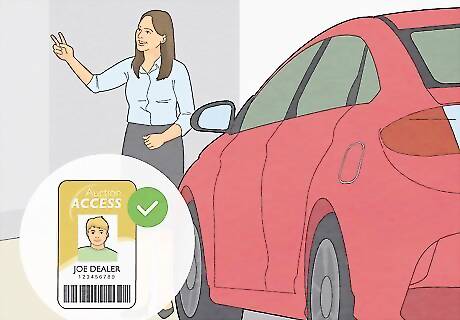
At dealer auctions, licensed dealers are the only ones that can buy cars. Dealer-only auctions are chances for dealers to gather vehicles to fill in their lots or to flip and sell for profit later. They are not open to the public, although private individuals can gain access if they work through a licensed auto broker. Generally, prices at dealer auctions are lower than at public auctions. Dealers are the only ones who can buy at dealer auctions, but they’re not the only entities that can sell. Banks, rental car companies, financial agencies, and other businesses that hold vehicles often have vehicles for sale. Dealer auctions may include both used vehicles and brand new ones.
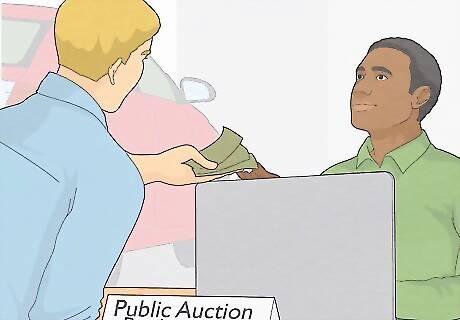
At public auctions, anyone can buy if they register for the event. Public auctions are open to anyone, with or without dealer and auction licenses. To bid and purchase, an individual just has to register at the auction desk when they arrive and pay a small entrance fee. Then, let the bidding commence!










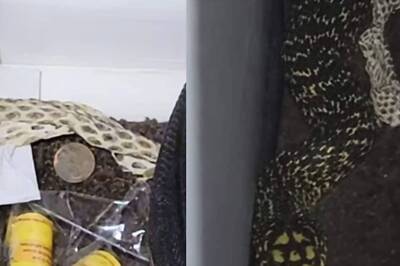







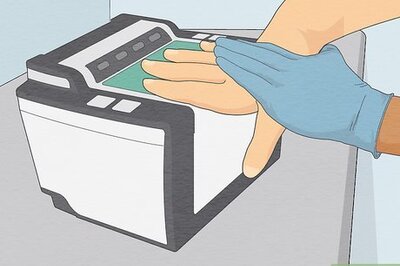
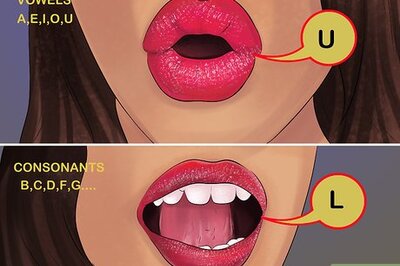
Comments
0 comment